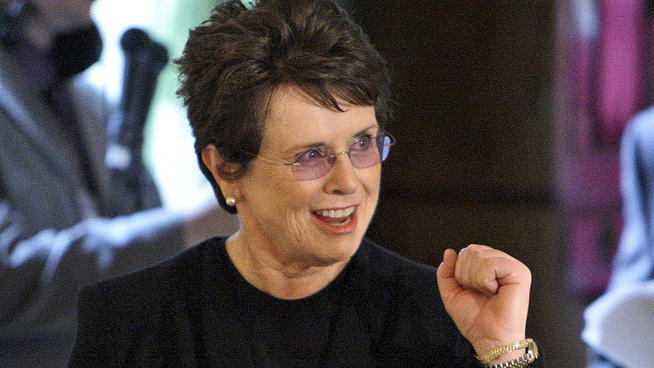
Prominent Chefs Oppose Anti-Gay Colorado Baker in Supreme Court Case
By Mark Sherman
Associated Press
WASHINGTON — Prominent chefs, bakers and restaurant owners want the Supreme Court to rule against a Colorado baker who wouldn’t make a cake for a same-sex couple’s wedding.
The food makers say that once they open their doors for business, they don’t get to choose their customers. They say that abiding by laws that bar discrimination based on sexual orientation does not strip them of creative control of a dish or a pastry.
Celebrity chefs Jose Andres, Elizabeth Falkner and Carla Hall, the owners of a popular Washington, D.C., cupcake shop and a small-town baker from Mississippi are among those who are signing onto a legal brief being written by the Human Rights Campaign.
Cake artists who want the justices to recognize the artistic expression in cake-baking filed a separate brief last month that does not take sides in the case.
The case pits the rights of a gay couple against baker Jack Phillips’ religious objections to same-sex marriage. The case will be argued on Dec. 5.
Phillips owns the Masterpiece Cakeshop in suburban Denver. In 2012, he told Charlie Craig and David Mullins that he would not make a cake for a same-sex wedding.
The couple complained to the Colorado Civil Rights Commission that Phillips violated the state’s anti-discrimination law. Phillips lost at every step in the legal process before the Supreme Court agreed in June to hear his case.
While Phillips’ religious beliefs about same-sex marriage underlie the case, the main argument he is making at the Supreme Court is that, as an artist, he cannot be compelled to create a cake at odds with his views.
The chefs, bakers and restaurateurs who are part of the Human Rights Campaign effort say that anti-discrimination laws in Colorado and 21 other states are reasonable regulations that don’t stifle their artistic creativity.
“It’s not about your art. When you’re open to service to people, you can’t decide who to serve and not serve,” said Falkner, who has owned restaurants in New York and San Francisco and been both a contestant and judge on cooking competitions.
Mary Jennifer Russell, owner of Sugaree’s Bakery in New Albany, Mississippi, said, “I can decide what to create and what to serve, but not to say I won’t serve it to a gay person, or a transgender person or a woman or a person of color.”
Sophie Kallinis LaMontagne, a co-owner of Washington’s Georgetown Cupcake, said she and her sister, Katherine Kallinis Berman, want the Supreme Court to hear from bakers and chefs “why we believe it’s so important that they don’t allow businesses to discriminate. This is about doing the right thing and welcoming all.”
Last month, 11 cake artists submitted a brief that looked almost good enough to eat. It contained dozens of pictures of extravagant and finely detailed cakes, including multitiered cakes for same-sex weddings.
The point of the brief was to show that the cakes are works of art and are entitled to the same constitutional protection as artworks in other mediums.
The cake artists do not call for the court to rule one way or another, but their argument fits nicely with the one being advanced by Phillips.










